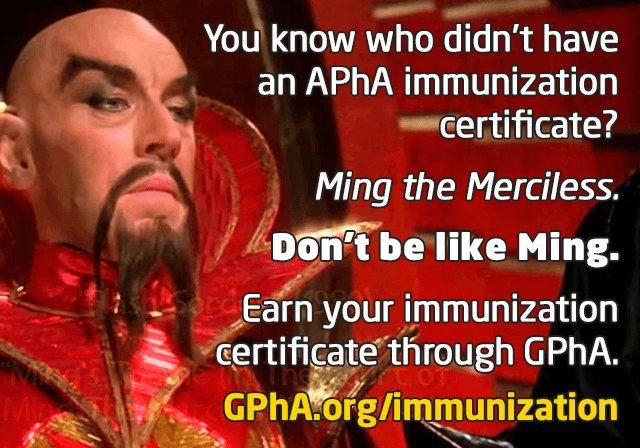A drug to restore hearing, field mouse invasion, Georgia’s cancer hotspots, and more
13 Apr 2022
Posted by Andrew Kantor
Georgia’s cancer hotspots
There are four areas in Georgia that are hotspots for cancer — specifically breast, prostate, and colorectal. And the reasons aren’t clear.
An Augusta University researchers found that, from 1999 to 2019, cancer deaths in the state “were concentrated in the eastern Piedmont to the southern-most Coastal Plain regions, as well as the southwestern rural and northern-most rural areas.”
Each of these hotspots has a high percentage of Black residents, older residents, and/or poor residents — but not always all three. The largely rural region around Augusta, for example, has several clusters:
Elbert County for colorectal cancer in Black adults, Jefferson and Jenkins counties for colorectal cancer in white adults, and McDuffie and Wilkes counties for colorectal cancer in all adults. […]
Neighboring Warren County was a breast cancer hotspot for all women, a lung cancer hotspot for Black men and a colorectal hotspot for all adults.
What does it mean, why do they exist, and what can be done? All that comes next.
Don’t miss your chance
How convenient that GPhA is offering the ultra-popular “APhA’s Pharmacy-Based Immunization Delivery: A Certificate Program for Pharmacists” on Sunday, May 22. It’s from 8:00 am – 5:00 pm at GPhA’s World Headquarters in Sandy Springs — a great idea before the next pandemic wave hits.
Note: This is always a popular course, so sign up quick so you are aren’t left out and laughed at by all the cool kids. Get to GPhA.org/immunization for the details and to register.
Covid in 34 seconds
Cases have continued to rise nationwide, but not hospitalizations or deaths … yet. It’s (mostly) concentrated in the Northeast and Mid-Atlantic so far. A blip or another surge?
Mayo Clinic: Cases will jump 54.4% in the next week and a half.
CDC: Hospital admissions https://www.cdc.gov/coronavirus/2019-ncov/science/forecasting/hospitalizations-forecasts.html over the next month. Maybe. Deaths should decline. (Unless the Mayo guess estimate is right.)

Do you want field mice? Because this is how you get field mice.
By leaving your office building empty for two years … but leaving food behind. Bonus: It’s the FDA.
Marketers wonder who influences patients
Pharmaceutical makers want to market their products, but face-to-face meetings with physicians are harder in These Trying Times. So two researchers set out to learn who, besides physicians, might have “prescribing-type conversations” with patients
So two researchers set out to learn “who could be the other people who have prescribing-type conversations” during a patient’s “prescribing journey.”
They were surprised at what they found. Can you guess?
“Surprisingly, pharmacists, who we didn’t foresee as having the potential influence they probably do, emerged as a key segment because they’re at that retail kind of moment of truth. Affordability is an issue for a lot of Americans today.”
How did pharmacists influence patients? It’s all in this statement: “We’ve been hearing from some clients that callbacks are a phenomenon for brands where they no longer have exclusivity.” Translation: When a cheaper generic or alternative is available, pharmacists are helping their patients to switch.
Statins sooner: Penny spent, dollar earned
Instead of waiting for patients to have a high risk of cardiovascular disease from high LDL cholesterol, it makes more sense, financially, to start them on statins sooner.
Northwestern researchers did the math and figured that, especially in countries that start statins later (like Scotland), public or private payors spend less on the ounce of prevention — especially with most statins so cheap — than they would on the pound of cure, i.e., treating heart disease.
Same outcome, except for the death part
All cancers are different, but that doesn’t mean a drug for one won’t work on another. In this case it’s nintedanib, the lung cancer drug. It turns out (say British researchers) that adding it to the chemotherapy of patients with bladder cancer significantly improves their survival.
Further study is needed: Adding nintedanib increased survival, yes, but it didn’t improve the cancer overall (the “pathological complete response”). Why that’s the case will require more studies.
And today’s potential Covid treatment comes from…
… pumpkins and peas. The flavonoids they contain, Israeli researchers found, work really well with zinc supplements to stop the virus from infecting cells. (Not science-y enough? Fine. The polyphenolic flavonoids act as zinc ionophores and transport zinc cations through the cell membrane*. Better?)
Anyway.
The combination of supplements effectively inhibited the replication of the virus in several cell types, notably in human lung cells, the researchers found. More than that, the supplement combination they created was more effective than if a person had taken each component individually.
* They “established unique synergistic combinations based on zinc and polyphenolic flavonoid zinc ionophores to prevent Covid-19”.
Reversing hearing loss … with drugs
A small biotech company — Frequency Therapeutics — is testing a drug to reverse hearing loss. And by “testing” we mean “has already given it to more than 200 people as part of a trial.”
Injected into the ear, its small-molecule concoction ‘reprograms’ progenitor cells (kinda like stem cells) in the inner ear, which then regrow as the tiny hair cells that were damaged by loud noises or certain drugs — the tiny hairs we need to hear.
“Some of these people [in the trials] couldn’t hear for 30 years, and for the first time they said they could go into a crowded restaurant and hear what their children were saying.”



